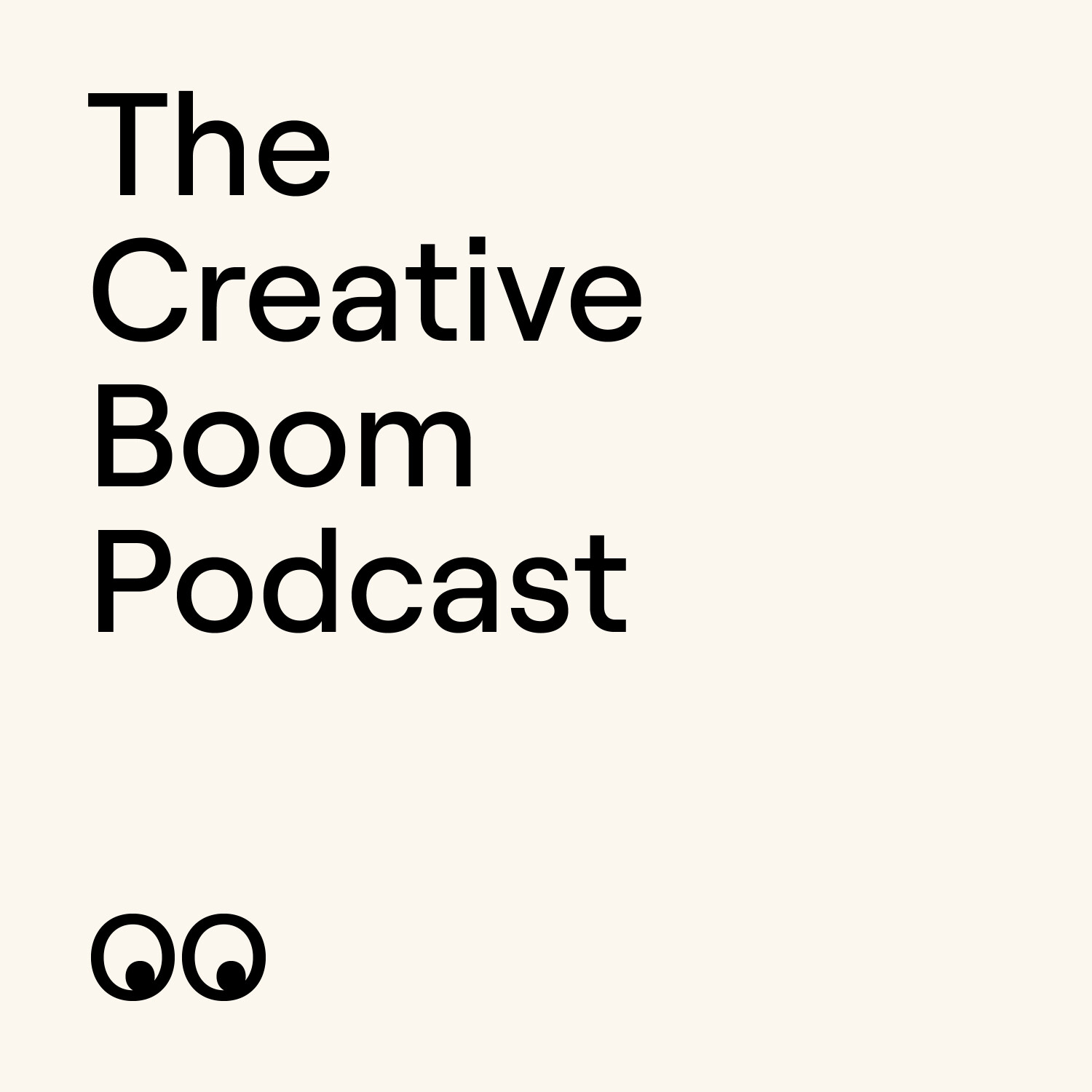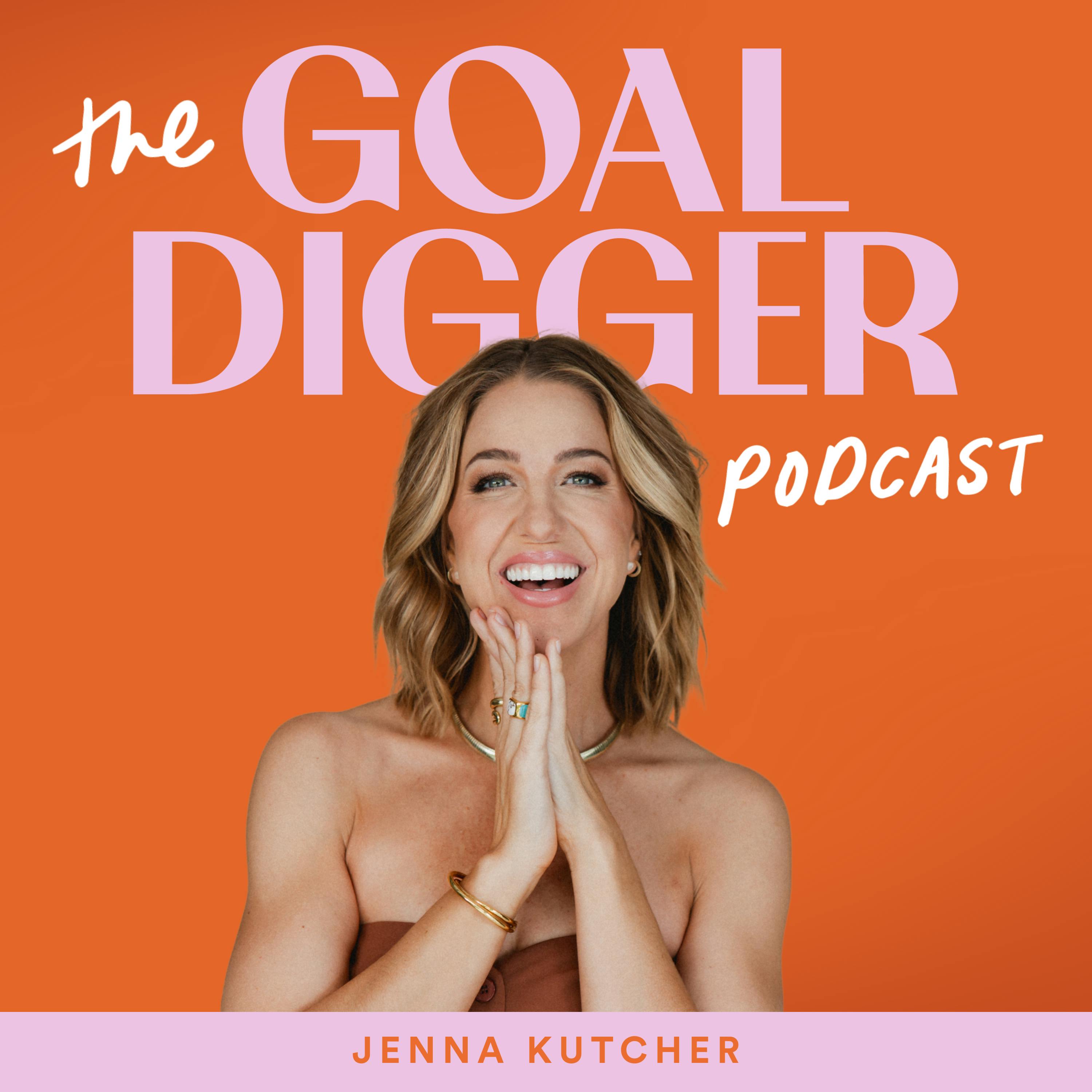
The Creative Jugglejoy Podcast
Welcome to "The Creative Jugglejoy Podcast," where multi-passionate mompreneurs find their community and inspiration.
Hosted by Kaylie Edwards & Co-Host Delores Naskrent, this podcast is dedicated to creative-minded women balancing the beautiful chaos of life, motherhood and entrepreneurship.
Are you a creative or mom who juggles business, passions, self-care, and family responsibilities?
Do you strive to pursue your creative dreams while raising a family? This podcast is for you!
Each episode dives into:
Balancing Business and Parenthood: Tips and strategies to manage your entrepreneurial ventures while nurturing your family.
Inspiration and Empowerment: Stories from successful multi-passionate creatives who have turned their creative passions into thriving businesses.
Mindset Mastery: Overcoming societal expectations and finding confidence as a mother and businesswoman.
Marketing Your Creations: Practical advice on promoting your creative business and building a strong personal brand.
Real Talk: Honest discussions about the challenges of juggling multiple roles and finding solutions to make it all work.
Join us every week as we explore ways to embrace your multi-passionate nature, unlock your creative potential, and thrive as a mompreneur or creative woman.
Whether you’re just starting out or looking to scale your business, "The Creative Jugglejoy Podcast" offers the support and resources you need to succeed. At least two co-hosted or interview episodes a month and a solo episode each per month for you to dive into.
Subscribe now and start your journey towards finding joy in the juggle!
The Creative Jugglejoy Podcast
The Magic of Mini-Offers: Validate Before You Build Big
In this co-hosted episode of Creative Juggle Joy, Kaylie and Delores dive into the world of mini offers — small, low-lift products that serve a specific need and help creatives test ideas, earn income, and build meaningful customer relationships without burnout.
Whether you sell handmade goods, digital art, or creative classes, this episode will give you:
- Clear examples of mini offers you can create today
- Insight into how art builds emotional connections (and why that is solving a problem)
- Ideas for linking small offers to bigger product ecosystems
- Strategies to attract repeat customers who trust your process
This is a warm, practical conversation full of encouragement — reminding you that your art is meaningful and marketable, even in its smallest form.
🎧 Tune in to learn how to create mini offers that feel aligned, support your creative income, and build long-term trust with your audience.
💻 Kaylie’s course From Handmade to Scalable is now open for enrollment (Beta round just £77!) — perfect for creatives ready to build sustainable income with their existing strengths. Details in the show notes.
Don't miss an episode—subscribe to The Creative JuggleJoy Podcast! Follow us on social media and join our email lists for more tips, stories, and updates on new episodes.
Kaylie Edwards - Instagram - Website - Facebook - Threads
Delores Naskrent - Website & Digital Art School - Instagram - Facebook - Pinterest - Youtube
- Procreate Foundations Course
- Affinity Foundations Course
Kaylie Edwards (00:05)
Hello lovely creatives and welcome to another episode of the Creative Juggle Joy podcast. I'm Kaylie and I'm here with my brilliant co-host Delores
Delores Naskrent (00:13)
Hi everybody, I'm Delores a Canadian artist and educator who's worked in both traditional and digital art spaces. Today we're going to dive into a juicy topic, how mini offers can help you validate your ideas, earn income without over committing, and build trust with your audience.
Kaylie Edwards (00:35)
you
Yes, whether you're a painter, a candle maker or a pattern designer, knowing what to launch first or next can feel paralysing. This episode is for anyone who's stuck wondering, will people actually buy this? Why mini offers work so well? A mini offer is a bite-sized product or experience that solves one specific need. Think a workshop, a digital download,
a small art bundle. It's low lift but high impact. So less pressure, faster feedback and early income. It's perfect for creative balancing caregiving, full-time jobs or chronic illness like I do or even a parent.
Delores Naskrent (01:20)
Yeah, I started this way without even knowing it. I started creating small brush kits and card templates and card kits and digital patterned paper packs, things I could really finish quickly and test. We're talking way back before Procreate existed, before Affinity Designer. This was way back.
in Illustrator, if you can believe it or not. Brush sets for Illustrator. And it helped me because it really gave me insight into what people actually wanted. And I didn't waste time building something really massive right out of the gate.
Kaylie Edwards (02:06)
Yes and that is perfect way of it and if you're more product based this could be a small product that could add on as a bundle of your handmade goods, a seasoned, sorry a seasonal variation, a theme pack that lets people dip their toes in.
Delores Naskrent (02:24)
like a
sampler, like offering a sampler. People love to buy or to try before they buy. So I don't know, just learn, you learn what resonates. You do learn what resonates.
Kaylie Edwards (02:38)
Yes, and what makes a mini offer work? Well, to work your mini offer needs to be specific. It needs, it's not about giving everything, but just solving one small need or desire or curiosity. Let's break it down by type of creative. So for handmade sellers, you could do a printable gift tag set to go with your physical product, a mystery mini product bundle. You could do a bonus
behind the scenes look at your supplies and the process and package it up into a pdf for super fans or for creatives like you that want to maybe try it out.
Delores Naskrent (03:18)
Yeah, perfect.
I can think of for artists ⁓ adding an art postcard collection. So at Craft Sales, we'd offer just a little mini magnet, so the size of a business card for some kind of upcoming occasion. So that was just something that we just had as a little bit of, ⁓ you know, just an easy sell.
You could also offer collectors only bonus prints or cards. You could do a time lapse or a story behind the art kind of an audio. I don't know, like a not a vlog, but podcast. I don't know, some kind of a recording. For digital artists, you could offer a small brush pack or a little texture pack. It doesn't have to be deluxe. You could do a mini class or a little demo video.
⁓ Another one that I've seen is a themed set of graphics or templates. So around Christmas time, you know, you could do a Christmas themed graphic or template set. One of my best mini offers came from listening to what my buyers were asking for.
when several people wanted more floral brushes, I made a focused pack and linked it back to a quick tutorial. It turned out to be a bestseller. It was one of the first things that I did, and that was way back. And boy, that ever opened my eyes. So that same thing happened when I created a brush set. And then someone commented they'd love to see this as a vector asset pack as well. So they had seen that it was available
to be used in something like Procreate, but they also thought wouldn't it be great if it was available for Affinity Designer as well. So now I usually create both and I just wouldn't have thought of it.
Kaylie Edwards (05:16)
Yes, and that's just such a great lead in. Your audience will tell you what they want. Or, if you have a product idea in mind, go see if it's on Amazon or Etsy or Zazzle or somewhere else and look at the comments. Sometimes that can be a great indicator or the reviews on Etsy. Look and see what people are asking for. Or was that product missing something or questions and things.
do and a great thing about mini offers is you can price them low because then you can bring more people into your world. They're testing, you know it's not a friction barrier for somebody to spend seven dollars on a brush pack.
rather than maybe $150 to start off with you as like a seller. What you can do is they're buying this little mini product from you and they're getting a taste of your quality, how they work, how it fits into their life and if they like it and they like you then they'll buy again and it's a great way to bring people into your world and to get them to trust and know like no one like you.
And these small offers often turn into trust building steps so buyers start small but come back for the bigger thing or for more if you delivered on it.
And you can also link mini offers to bigger offers and add repeat sales. So how does a mini offer connect to something bigger in your ecosystem of offers? A free printable could lead into a premium seasonal pack. A behind the scenes video or demo could lead into a paid course or workshop. Maybe a small card that you've created could turn into an order of gift wrap paper or other giftable items.
that could be around that design or maybe a theme or colour scheme.
Delores Naskrent (07:24)
I
think it's also about nurturing repeat customers. I've seen people who bought a $5 bundle come back later for a full course because it was the experience that they are coming back for and they had a good experience the first time. So most of my students and buyers of my brush sets, for example, buy again and again and I was
recently asked by someone that is going to be helping me do some stuff to download a list of all of the people who have purchased brush sets from me in the past. And it was a statistic I had never stopped to really look at very closely. And I was surprised at how many of the people who had bought from me had bought brush sets
time and time again. Five, six, seven brush sets. I had no idea. You I don't watch every single order that comes in. so that taught me a lot.
Kaylie Edwards (08:32)
Yes it does and it really like you can see the correlation as well like of how things have progressed over time and you can see how loyal people can be like just by looking at past orders and you start seeing these names pop up consistently and then you can go wow like these are people that keep coming back and that just proves how many offers can really work and I don't like I don't worry if you you know
If your audiences are slightly different, if it makes sense and feels aligned, you can serve collectors and creatives. Just keep the messaging clear for each group of people you serve and make sure the paths are easy for them to follow to get to your relevant products and offers that are relevant to them.
It's just about figuring out because like Delores she sells obviously to people with her art but she also sells to people that want to learn how to do it as well. So it's making sure that they're segmented, it's segmented and they know the easy paths to follow or even just selling let's say on one platform but then on the other platform you sell to a different audience that's how you can work it as well.
But what if my art doesn't solve a problem? I hear this all the time. We get this question so much. I'm not solving a problem like a business coach would. you know, I don't do fitness or whatever. I'm just making art. But here's the thing. Art solves emotional and human beauty, comfort, identity.
It can be a big one. Connection and celebration. Like people will pay so much. Like you see these people that pay so much for a watch.
Delores Naskrent (10:29)
now.
Kaylie Edwards (10:29)
like so much they can go for thousands of thousands of pounds a watch like for a brand just because it's got a brand name on it and it has that identity attached to it that's why someone's bought it because of the identity like people see if somebody sees you walking down the street with a Rolex there is an identity attached to it because there's a perception of people have of that brand
It's the same goes with art. You can have an identity. Someone might see a piece of art, let's say, I'm saying this because I like fantasy stuff. like, t-shirts, like I am literally wearing a Batman t-shirt right now. So you would know that you would know that I like watching Batman and superhero stuff because I'm wearing it. So it's the same kind of thing with your art. Like you can put art on clothing.
So it's how you solve a need or a desire.
Delores Naskrent (11:23)
Yeah agreed connection I think that's what you're talking about connection and that that feeling of belonging. So for so many people absolutely it just becomes part of their rituals like their their self-expression. It's it's not fluff you know what you do you the art you create it's purpose-driven in its own way.
Kaylie Edwards (11:33)
Yes.
Delores Naskrent (11:50)
What I'm selling is not necessarily the product itself, but how it makes people feel.
Kaylie Edwards (11:57)
Yes, art can have such emotional connection as well and that is how you can tell the difference between somebody who sells art and knows how to tell the story and the emotion because they have a lot more sales and they're doing so much more successfully. They're not just sticking up a piece of art and saying buy this. Because at end of the day we don't buy the thing, we buy what it makes us feel emotionally and what it serves a purpose for.
Even a mini collection of calming art can meet a need. A seasonal craft kit can offer a creative outlet. These are solutions just on a different wavelength. When going back to that seasonal craft kit, it solves a problem in a way because you're making it easy for someone to create. You're taking out the hurdles and the challenges of somebody, learning from scratch.
Delores Naskrent (12:47)
Yeah.
Yes, yes.
Kaylie Edwards (12:55)
and
stopping that blank, that blank, what's it called? The little blank canvas, like you stare at a blank canvas, don't you, and you're just like, what the hell do I do?
Delores Naskrent (13:04)
Where do I start? Where do I start? Help me.
Kaylie Edwards (13:07)
It's like I see some artists, like they will literally, instead of staring at a white canvas, they will paint it a different colour. All of it will just be one another colour. They'll just paint it another colour and it'll give them the inspiration that they need to then start and make a start on it and do something with it.
Delores Naskrent (13:24)
really really cool and I totally get that. had my sister was here visiting and she invited a friend over and this friend is into art therapy and
I showed her one of my art journals and I watched her as she was going through the book and as she was going through it she kept putting her fingers in to mark certain pages and when she had finished going through all of the pages she stopped and she opened the pages back to where she had marked and then she asked me questions about those pages and
Most of what she was asking me was about the feelings that I have or I had when I was creating the particular piece of art. And I found that to be so...
fascinating, honestly. And this woman is an artist. So it was really neat to watch her interact with my journal as we all sat visiting. There was a whole group of us and she was just slowly going through the pages and she sometimes went back, you know, a page or two or she'd just stop and really look at something closely. And, you know, I really think that, you know, this is exactly what
this kind of a mini offer can do is to help people get into that little bit of your world and start to see the magic. And I just think it is so important that we take the time to really think about how we can help people and how we can get them drawn into our world.
Kaylie Edwards (15:13)
Yes, for sure. art is such an emotional thing because people see different things in a piece. You can ask two different people and they will probably you two different answers of how that piece makes them feel. I see it on TV shows and stuff and you see people walking around art galleries and they're asking each other about the piece. And oh, this one says, oh, I feel like this person must have been angry when they made it. And then another person would be like, no, I think it's sorry.
or something like that and yeah you've just got to kind of put yourself in your bio shoes but then also maybe ask them. That is the best way to find out how your art connects with others is asking people what it makes them feel like what they thought was going on in your head or something the story that was behind that they see it because people will make stories up in their head about what your art is and what it means to them.
Thank
Delores Naskrent (16:14)
Yeah.
Yeah. I know we went off there.
Kaylie Edwards (16:20)
I
went off on a bit of a tangent. Yeah, so if today's episode has your wheels turning and you're thinking I want to build something sustainable but I don't know where to start, that's exactly what I cover inside my signature course From Handmade to Scalable.
the final days to join the beta round for just £77 before the price increases. We start with strengths and values and not trends and you'll validate your idea and map out plan that fits your life and I will be also creating a Google Sheet that has all the lessons in it and paths for you to take with whatever scalable income stream you want to start with. So I go through so many print on demand, I go through
KDP which is Amazon ⁓ direct publishing. ⁓ I go through so many principles, digital downloads, even courses and creating assets for sale. I go through all of these and you can walk through how to get started with each of them and then the final modules you'll learn how to market it and how to create sales and things for it as well.
So if you... that. Yeah, so the sign up details will be in the show notes and also you can find it on Instagram as well around this time.
Delores Naskrent (17:40)
Well, I love that. mean, I love the idea of validating before you start building. I think this is a really good episode, Kaylie I'm glad that you mentioned the course because I think there are people out there who are poised on the brink, but they just need a little bit of a nudge. So I think this will be perfect. If you are
Thinking about it, I would recommend that you take a look at this course and consider it. And if you are interested, share it with a creative friend. Why don't you see if somebody that you know wants to take the course along with you? And of course, tag us in your stories, because it really helps us to reach more makers and more artists, which is really our goal with these podcasts.
Kaylie Edwards (18:33)
Yes, and if you've launched a mini offer before or you're thinking about it now, message us. We'd love to celebrate you or answer questions in the future episodes.
Delores Naskrent (18:43)
Keep creating, keep juggling, and most importantly, keep finding joy in the process.
Podcasts we love
Check out these other fine podcasts recommended by us, not an algorithm.

The Professional Creative
Bonnie Christine
Art + Audience
Stacie Bloomfield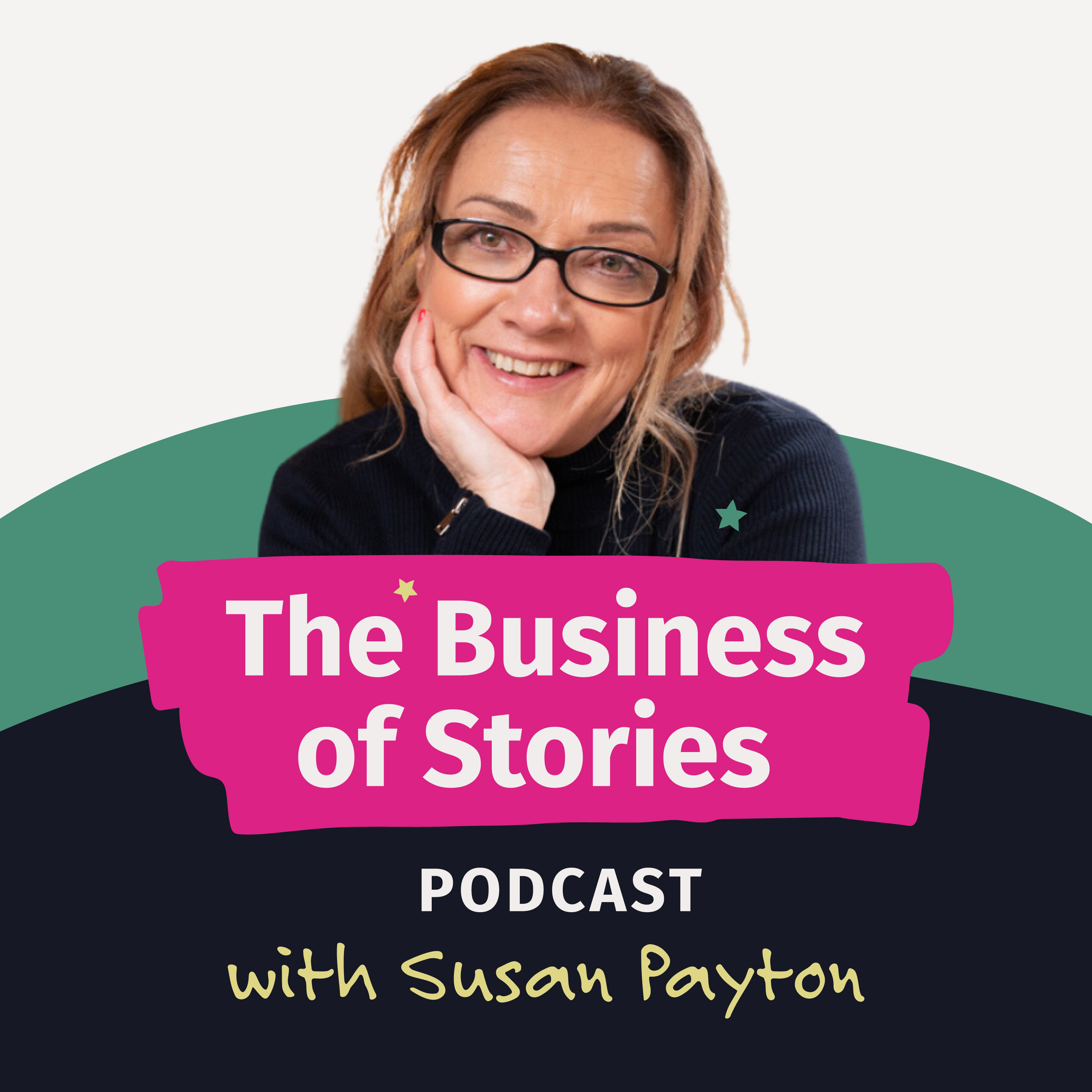
The Business of Stories with Susan Payton
Susan Payton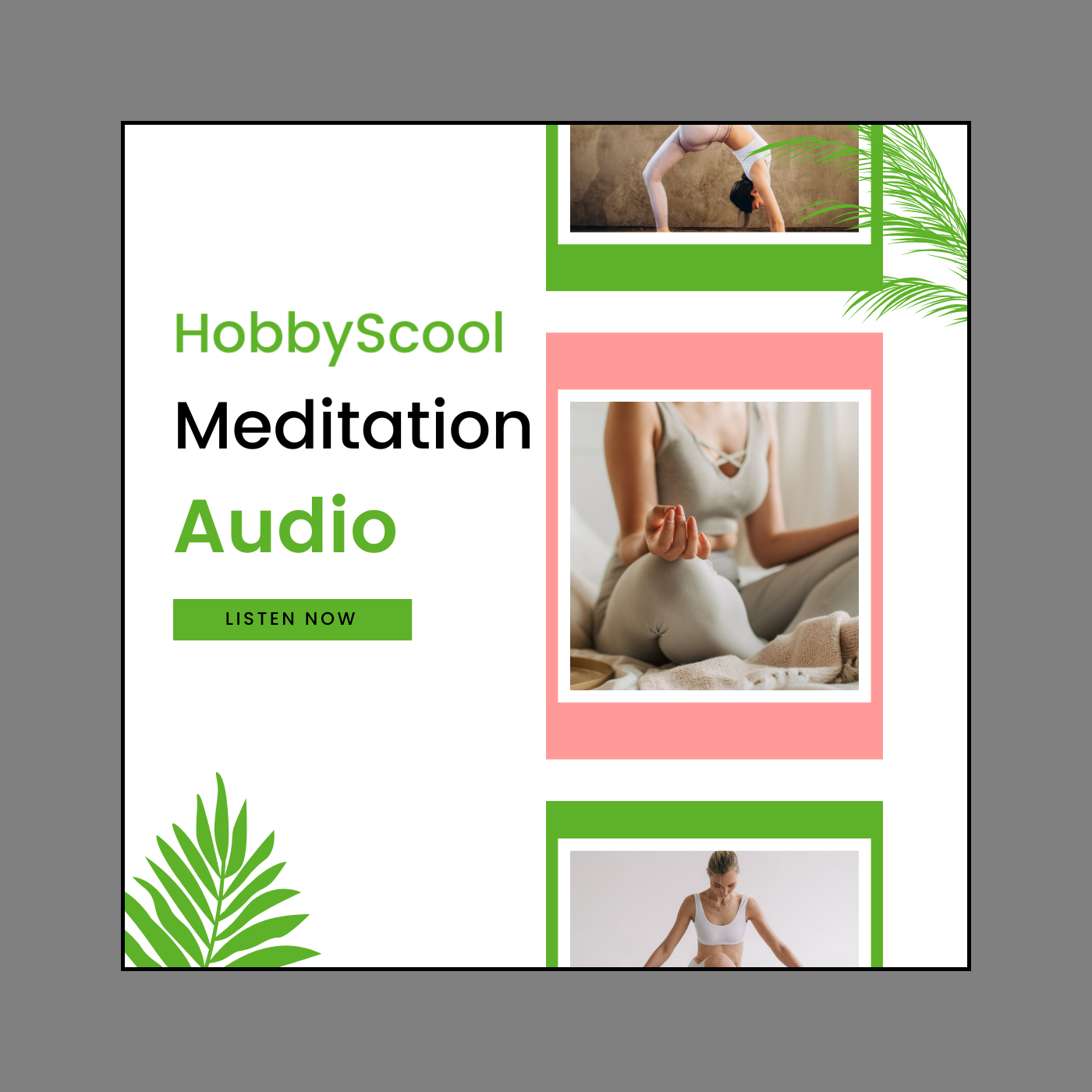
HobbyScool Meditation for Stress Relief
Destini Copp
Creator's MBA: Marketing Tips for Digital Product Entrepreneurs
Dr. Destini Copp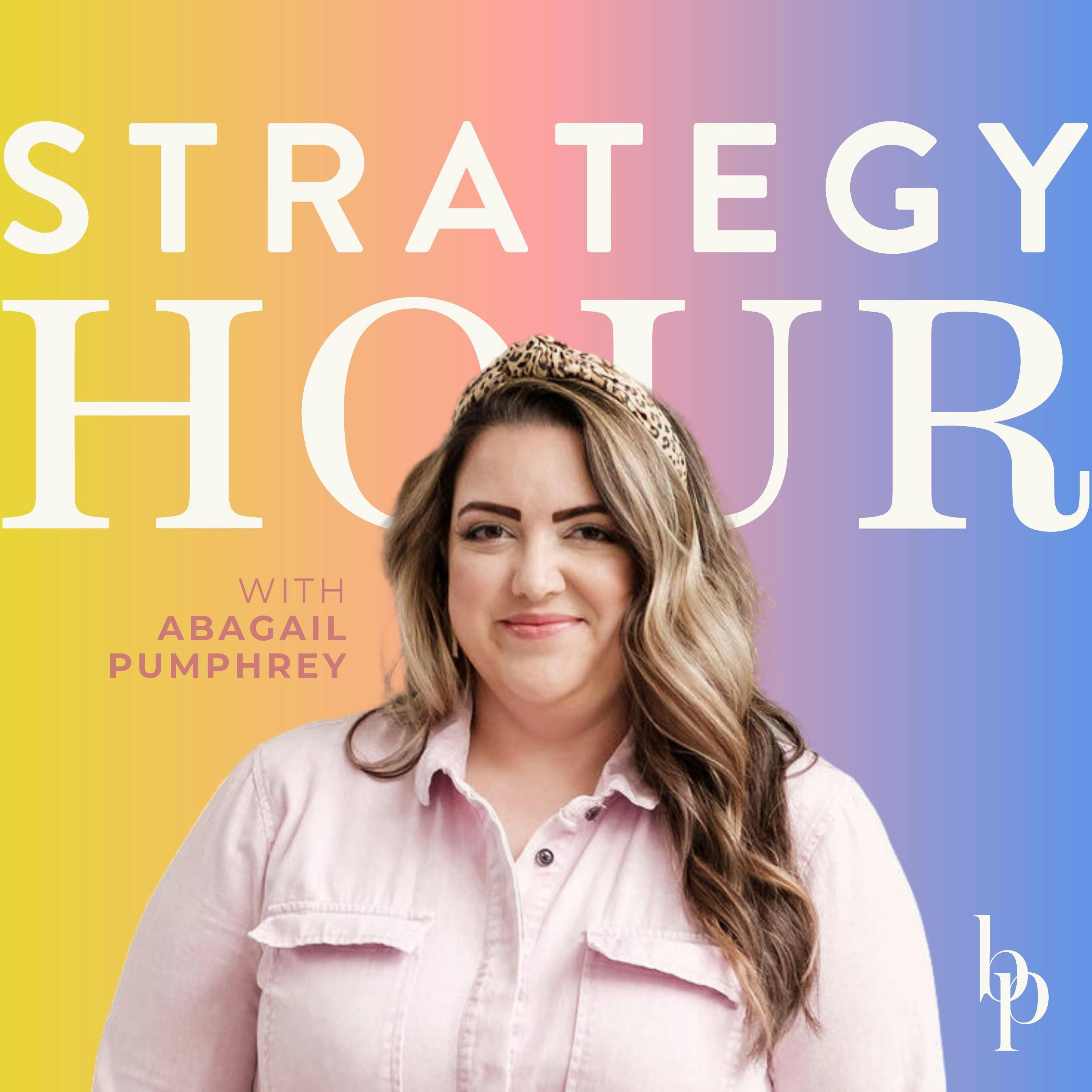
Strategy Hour | Online Marketing for Business Growth
Abagail Pumphrey - Business Strategist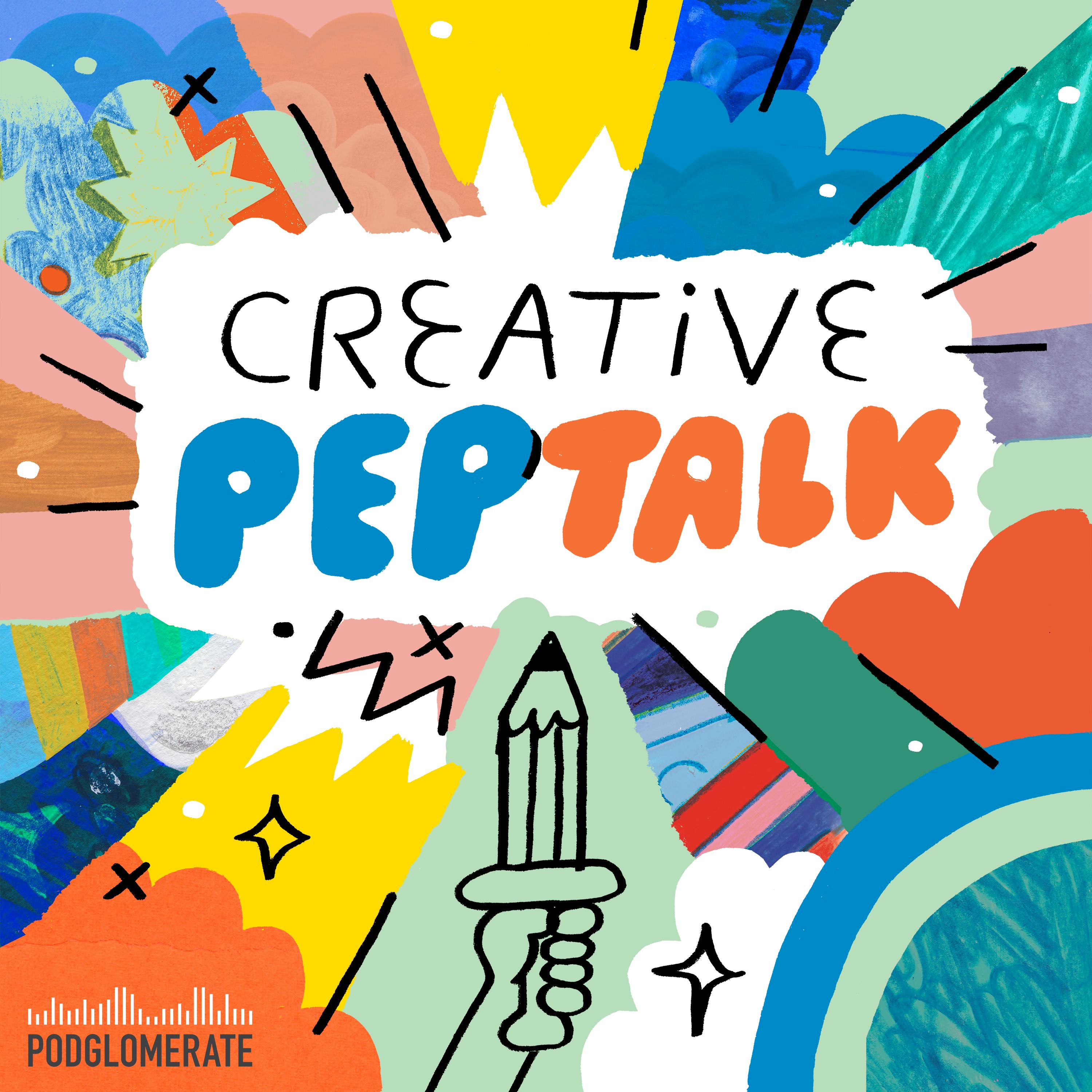
Creative Pep Talk
Andy J. Pizza
Scale with Success®
Caitlin Bacher
The Mel Robbins Podcast
Mel Robbins